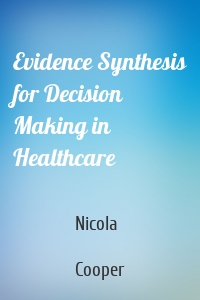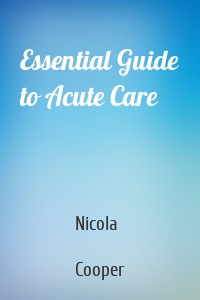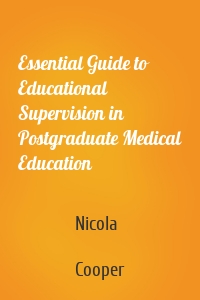Nicola Cooper
4 кн.
Evidence Synthesis for Decision Mak...
In the evaluation of healthcare, rigorous methods of quantitative assessment are necessary to establish interventions that are both effective and cost-effective. Usually a single study will not fully address these issues and it is desirable to synthesize evidence from multiple sources. This book aims to provide a practical guide to evidence synthesis for the purpose of decision making, starting with a simple single parameter model, where all studies estimate the same quantity (pairwise...
| Автор | Nicola Cooper |
Essential Guide to Generic Skills
This is a vital text to help you with the competency assessment in the UK Foundation Programme giving practical advice in an easy to follow format. It advises new doctors on note-keeping, time management/organisation, communicating with colleagues, the structure of the NHS, and how to deal with the ethical and legal issues they face when on-call. Also looks at emotional intelligence, learning styles or how different personality types can work together more effectively.
| Автор | Nicola Cooper |
Essential Guide to Acute Care
What you really need to know, but no one told you. The Essential Guide to Acute Care contains everything you really need to know about acute care that you can’t find in a standard textbook and have probably never been taught before. Starting with the concept of patients at risk, the Essential Guide to Acute Care explains how to recognise and manage the generic altered physiology that accompanies acute illness. The principles of acute care are explained simply yet comprehensively. Throughout the...
| Автор | Nicola Cooper |
Essential Guide to Educational Supe...
The world of postgraduate medical education is changing, and educational supervisors need the knowledge and skills to be able to do their job effectively. Many of those who want to do this job well feel unprepared for the task. Essential Guide to Educational Supervision is a handbook for educational supervisors everywhere. The topics covered are generic to medical education, whatever the specialty. Although the focus is on postgraduate medical education, many of the topics in this book are also...
| Автор | Nicola Cooper |





